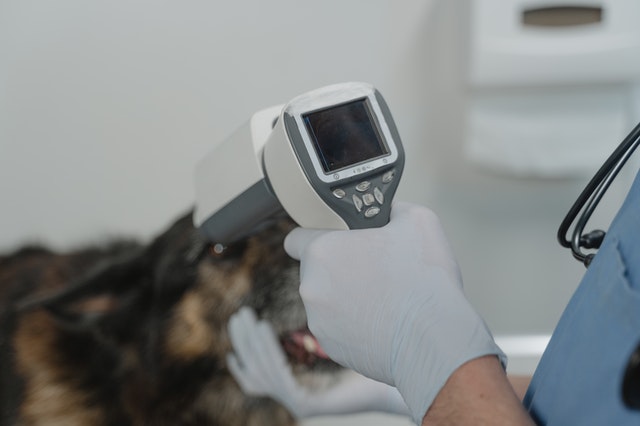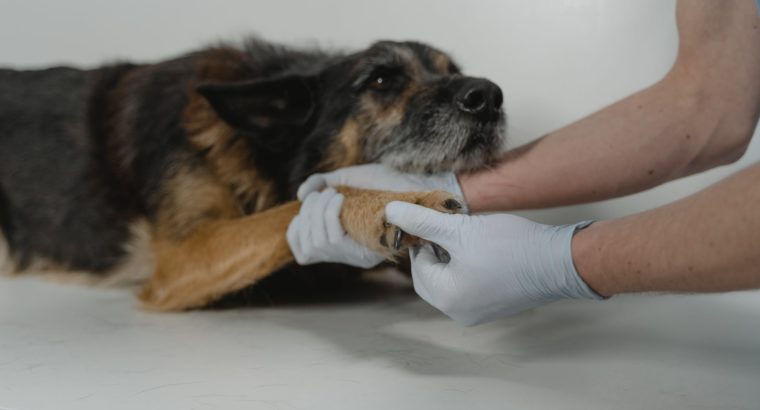What Are Orthopedic Veterinarians and How Do They Differ From Other Veterinarians?
Veterinarians play an important role in the lives of animals. As you may know, they are doctors for animals. Veterinarians are real doctors. Like medical doctors for humans, they’ve completed a Doctorate program. Veterinarians simply treat animals rather than humans. There are many different types of veterinarians, however, one of which is an orthopedic veterinarian. When researching careers in the veterinary medicine industry, you might be wondering what are orthopedic veterinarians and how do they differ from other veterinarians.
Overview of Orthopedic Veterinarians
Orthopedic veterinarians are those that specialize in diagnosing, treating and preventing orthopedic-related medical conditions in animals. Orthopedics refers to the musculoskeletal system. All animals have a musculoskeletal system. It’s comprised of muscles, ligaments, bones, tendons and other tissues. While orthopedic veterinarians have the knowledge and skills needed to treat other medical conditions, they specialize in orthopedic-related medical conditions that affect an animal’s musculoskeletal system.
Some of the most common types of orthopedic-related medical conditions treated by orthopedic veterinarians include the following:
- Patellar luxation (floating kneecap)
- Severe arthritis
- Bone fractures
- Tendon repair
- Ligament repair
- Osteochondritis dissecans (OCD)
- Hip replacement
Difference Between Orthopedic Veterinarians and Other Veterinarians
When an animal is sick or injured, its owner may seek the services of a veterinarian. All veterinarians can diagnose and treat illnesses, as well as injuries, in animals. That’s the primary responsibility that comes with the role of being a veterinarian. Orthopedic veterinarians, however, specialize in orthopedic-related medical conditions. If an animal is suffering from an injury or illness that’s affecting their muscosleketal system, an orthopedic veterinarian can help.
Other veterinarians can treat orthopedic-related medical conditions as well. The difference is that orthopedic veterinarians specialize in orthopedic-related medical conditions, whereas other veterinarians do not. Most veterinarians don’t specialize in any particular branch of veterinary medicine. Veterinary medicine is an all-encompassing field that covers a variety of medical conditions. Orthopedics, on the other hand, is a narrower branch that focuses on the muscosleketal system. Orthopedic veterinarians are tasked with diagnosing, treating and preventing injuries and illnesses that affect the musculoskeletal systems of animals.
The American Veterinary Medical Association (AVMA) recognizes surgery as a board-certified specialty. Within the surgery specialty are several sub-specialties, including neurosurgery, soft tissue surgery and orthopedics. There are orthopedic veterinary surgeons who specialize in performing surgical procedures. They perform surgeons on animals to treat orthopedic-related injuries and illnesses.

Why Orthopedic Veterinarians Are Important
Animals can suffer from orthopedic-related medical conditions just like we can. From dogs and cats to horses and sheep, all animals have a musculoskeletal system. Muscosleketal systems consist of muscles, ligaments, bones, tendons and other tissues. Some injuries and illnesses that affect the musculoskeletal system are minor. Others, of course, are more severe. Depending on the severity of an orthopedic-related medical condition, animals may experience pain and a shortened lifespan. Orthopedic veterinarians offer a solution. They can diagnose and treat these conditions while subsequently improving the lives of animals.
Not all veterinarians have the knowledge and skills needed to treat orthopedic-related medical conditions. Some orthopedic-related medical conditions require surgery to treat. If a veterinarian isn’t comfortable performing the surgery, he or she may refer to the client to an orthopedic veterinarian. Orthopedic veterinarians often secure clients through referrals such as this. They partner with local veterinary clinics in their area. When a client visits a local veterinary clinic in need of orthopedic veterinary services for his or her pet, the clinic may refer the client to an orthopedic veterinarian.
How to Become an Orthopedic Veterinarian
To become an orthopedic veterinarian, you’ll need to complete a Doctorate of Veterinary Medicine (DVM) program. The completion of a DVM program is a licensing requirement for veterinarians. All veterinarians must complete a DVM program before they can begin practicing — and orthopedic veterinarians are no exception. Orthopedic veterinarians are still veterinarians; they just specialize in orthopedic-related medical conditions. As a result, you must enroll in a DVM program if you’re looking to become an orthopedic veterinarian.
A DVM program is a four-year training program that covers a wide range of topics related to veterinary medicine. It’s offered at dozens of colleges throughout the United States. Most of these colleges have prerequisites for enrollment. You may need to earn a bachelor’s degree, for instance, before you can enroll in a DVM program. A bachelor’s degree program itself can take four years to complete. Therefore, most veterinarians spend about eight years in school. Whether you want to become an orthopedic veterinarian or a traditional veterinarian, you’ll need to complete a DVM program, which is typically preceded by a bachelor’s degree program.
Because it’s a specialty, you’ll typically need to work as a traditional and licensed veterinarian before pursuing a career as an orthopedic veterinarian. Some veterinarians practice at a clinic for four or more years, after which they seek a specialty like orthopedics.

